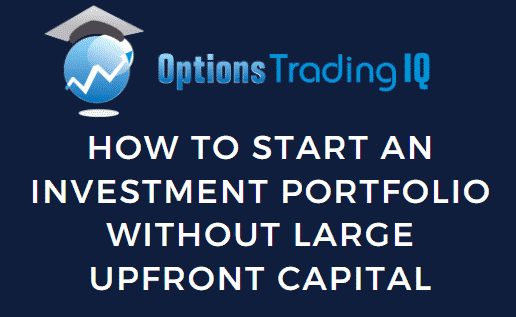

Not everyone has a massive account with which to start investing, so today let’s take a look at how to get started without a large amount of capital.
Contents
Not having a large amount of upfront capital should not deter you from investing.
It may have been a requirement in the past to have substantial funds to begin a portfolio, but those days are over.
With the rise of technology, anybody can begin investing with as little as $100.
You are never too young to start investing and the sooner you start, the greater the rewards.
Direct Stock Purchase Plans
If you would like to invest in certain companies then you might want to consider signing up to a direct stock purchase plan.
As the name hints, this style of investing has your purchasing the shares directly from the company and not through a brokerage firm.
The only issue is you may be limited to your selection as not every company has this as an available investing option.
As a new investor, your research skills might not be as sophisticated as a seasoned professional, but that’s ok.
Companies are prohibited from advertising their direct purchase plans – therefore you will need to begin your research to discover what companies are offering it.
Start by visiting some of your favourite companies’ websites and searching for their ‘investor’ information page and you will be likely to find detailed information on if they provide purchase plans or not.
Unlike a brokerage firm, direct stock purchase plans allow an investor to buy portions of a share.
For example, say you only have $100 to start investing but the stock is valued at $200, you can buy 50% of that stock.
This is great for beginner investors as you can avoid the large minimum investment amounts charged by a majority of brokerage firms.
Investing Apps And Online Brokers
Hundreds of online brokers charge a fraction of the amount of a physical brokerage firm.
Furthermore, dozens of apps will let you invest for free such as ‘Robin Hood’.
Online brokers can charge significant fees on profits made through these services, so when you are signing up for one of these services it is important to read the terms and conditions to discover any potential hidden fees.
These online services often include ‘How To’ courses that teach beginner investors the ins and outs of investing and all the best strategies for building up a strong and diversified portfolio.
Investing apps work similarly in that they provide tutorials and potential hidden fees, but where the difference lies in how your investment is funded.
Most apps will not allow full control over where your money is invested – what is meant by this is that the app might round up your purchases over the course of a day and then invest the round-ups into the apps hedge fund.
Invest In Exchange-Traded Funds
If you are thinking about investing in a mutual fund as a first-time investor but don’t have the initial funds to make it happen?
It may be more beneficial for you to invest in an exchange-traded fund.
Unlike a mutual fund that can impose a minimum investment, exchange-traded funds trade like stocks.
The market dictates the price of the security which can then be purchased by both online or physical brochures.
Exchange-traded funds are excellent for beginners as you can invest a small amount, to begin with, and keep investing small amounts over a set period.
Despite all the upside potential of ETFs, there are some drawbacks.
Firstly, you cannot purchase segments of an ETF, you have to purchase the entire share.
Secondly, you are going to be paying a commission on each trade you make, and this can seriously add up over time.
Commissions can run between $4.50 on the low end, to $11 on the high end. If you make consistent trades, then these amounts can eat into potential profits.
It is possible to keep these costs down by purchasing a few shares at a time with larger amounts of money to keep the transaction costs down.
Conclusion
Overall, there are many avenues for first time investors to enter the industry and start acquiring expertise, regardless of the initial investment funds you have.
It is better to start now than never!
Trade safe!
Disclaimer: The information above is for educational purposes only and should not be treated as investment advice. The strategy presented would not be suitable for investors who are not familiar with exchange traded options. Any readers interested in this strategy should do their own research and seek advice from a licensed financial adviser.










